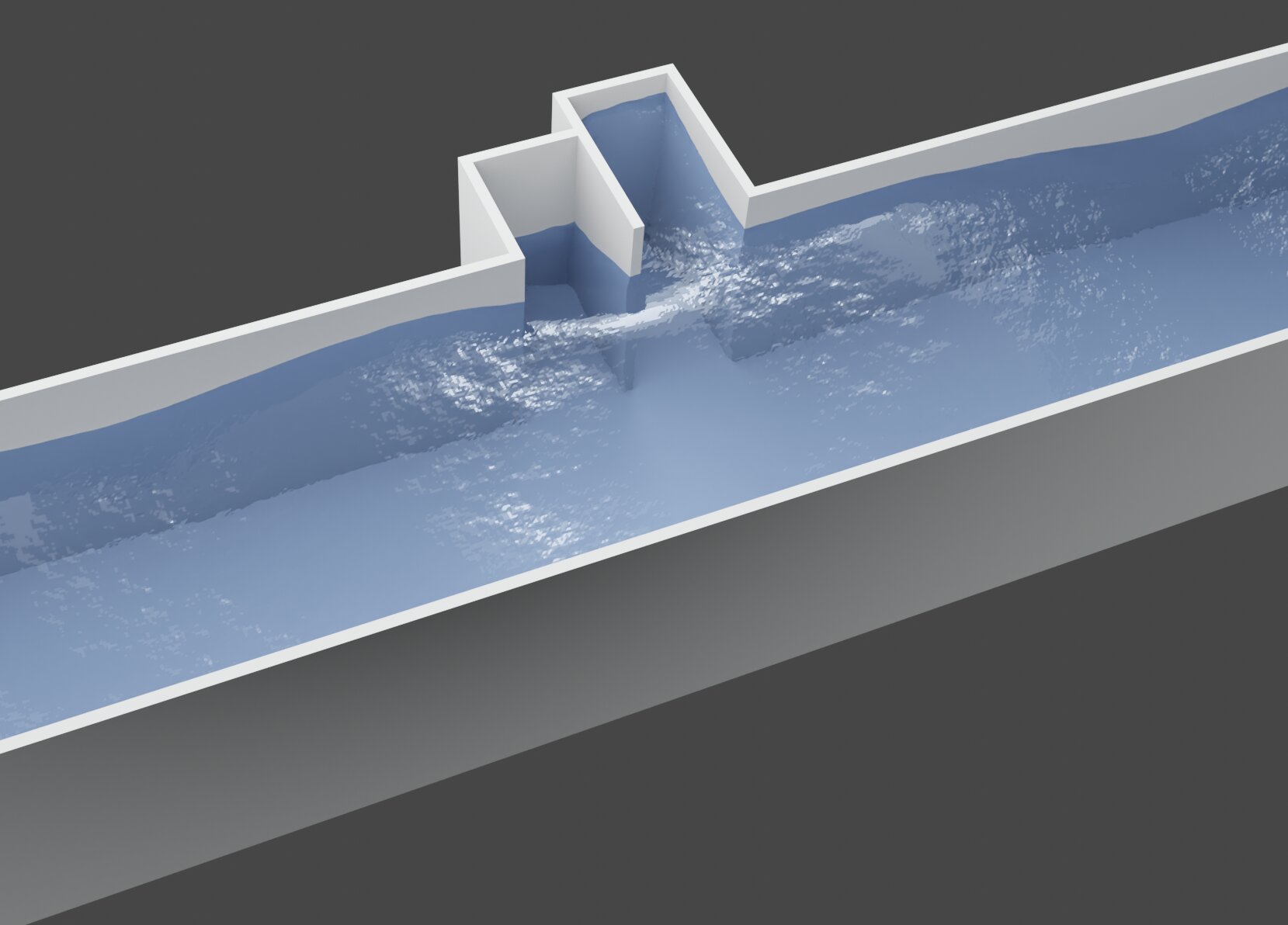

The absorption of water waves is the process through which water waves lose their energy, thus reducing their impact on shores or other solid structures surrounding them. Enabling this absorption process in real-world settings could help protect coasts and structures from damage caused by waves during extreme weather conditions.
Researchers at Sorbonne Université CNRS, Institut Polytechnique de Paris, University of Bristol, Le Mans Université CNRS and Université PSL CNRS have been trying to devise effective strategies to enable the efficient absorption of water waves for decades. In a recent paper published in Physical Review Letters, they have introduced a promising new strategy, based on a concept introduced by American physicists Stanley Autler and Charles Townes in the 1950s.
“We’ve been working for almost 20 years on water wave-related issues, and for the last five years or so we focused on problems specifically linked to the absorption of these waves for the protection of coasts or offshore structures,” Agnès Maurel, co-author of the paper, told Phys.org. “To this end, we have developed strategies based on resonant mechanisms, as is the case in this study.”
In their paper, Maurel and her colleagues introduced new strategy for realizing the perfect resonant absorption of guided water waves, which is based on a resonant effect known as Autler-Townes splitting. This is a physical effect occurring in two-level resonant systems, which is characterized by a splitting of two transition states into smaller “doublet” states separated by the a so-called Rabi oscillation.
Autler-Townes splitting was realized and observed in various physical systems, ranging from radio frequency sources to lasers and atoms. As part of their study, Maurel and her colleagues tried to leverage this well-established effect to control the propagation of guided water waves.
“This experimental achievement stems from a theoretical analysis of the resonant mechanism we published last year, which we adapted for the specific purpose of absorbing water waves,” Maurel explained. “Léo-Paul Euvé, through his innovative approach to implementing experiments and optical measurements in the laboratory, ultimately managed to demonstrate the effectiveness of this mechanism.”
The researchers demonstrated the effectiveness of their proposed strategy for controlling the propagation of water waves theoretically, in numerical simulations and experimentally. In their experiments, they were able to realize the complete absorption of guided water waves, using a carefully designed asymmetric point-like scatterer, comprised of two closely spaced resonant side channels connected to a guide.
“The efficiency of absorption, i.e. the complete suppression of waves reflected and transmitted by a sub-wavelength device, is the result that seems most significant to us,” Maurel said. “Practical applications of course concern the design of such systems for coastal protection and, in general, for all structures at or near the sea.”
This research team’s proposed strategy to enable the resonant absorption of water waves could soon be tested further in both laboratory and real-world settings. If its effectiveness is confirmed, it could ultimately be employed in coastal regions, to control the energy with which waves hit surrounding shores and man-built structures, thus limiting associated damage.
“In the context of applications spanning seas and oceans, it is crucial to consider the inherently non-linear nature and wide spectral content of water waves,” Maurel added. “While not necessarily delving into specific applications at this moment, we must incorporate these factors into our forthcoming studies, a process that is already underway.”
More information:
Léo-Paul Euvé et al, Perfect resonant absorption of guided water waves by Autler-Townes splitting. Physical Review Letters(2023). DOI: 10.1103/PhysRevLett.131.204002.
© 2023 Science X Network
Citation:
A strategy to realize the efficient resonant absorption of guided water waves (2023, December 14)
retrieved 14 December 2023
from https://phys.org/news/2023-12-strategy-efficient-resonant-absorption.html
This document is subject to copyright. Apart from any fair dealing for the purpose of private study or research, no
part may be reproduced without the written permission. The content is provided for information purposes only.





